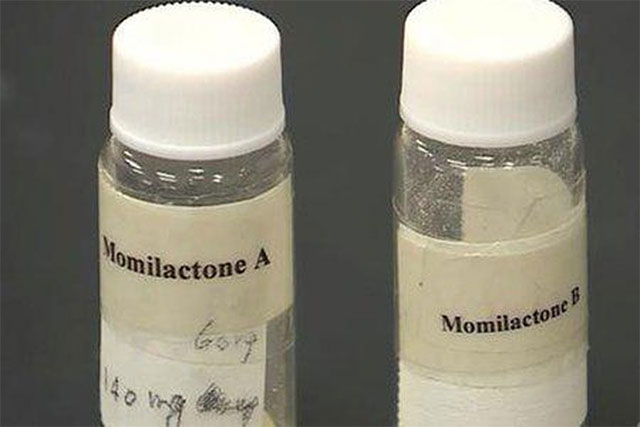Precious substances from rice cause cancer cell death
Momilactones B extracted from white rice has an effect on human breast cancer cells that inhibit growth because of the low oxygen environment.
The molecular mechanism that Momilactone B (MB) exerts its inhibitory effect on breast cancer cells was published by the Korean scientists in the International Journal of Oncology. 2008: In the Youn-Hee Young experiment (KonKuk University, Korea) and colleagues performed, MB extracted from rice husks was used to affect breast cancer cells. Then apoptotis cells increase under hypoxia (apoptotis is the term used in molecular biology, that is, the process of self-destruction of cells according to the program available in genes).
These results indicate that MB inhibits the growth of breast cancer cells, regulating the expression of genes involved in apoptosis. From this study, the scientists concluded that MB increases the rate at which apoptosis causes hypoxia of human breast cancer cells and may represent a chemotherapy agent or effective treatment against breast cancer. .

MA and MB compounds are extracted from rice.(Photo: Hiroshima University).
This oxygen induction mechanism has also been awarded the 2019 Biomedical Nobel Prize for three scientists William Kaelin, Gregg Semenza (American) and Peter Ratcliffe (English). Scientists believe that the new understanding of the mechanism to control an essential physiological process of life like this has great applicability in the treatment of many diseases. Identifying the mechanism of action of MB on breast cancer cells also opens the door for further studies of this substance in cancer treatment applications in humans.
MA and MB were first discovered by Japanese scientist Tadahiro Kato in rice husk in 1973. By 2019 Vietnamese scientist - Associate Professor Tran Dang Xuan, Head of Plant Physiology and Laboratory Biochemistry, Hiroshima University (Japan) and colleagues successfully extracted from rice and rice husks. From 20 kg of rice husk, after nearly 3 months, about 300 mg MA and 200 mg MB (accounting for about 1/100 -150 thousand weight of rice husk) were extracted.
This success opens up the prospect of recovering valuable substances from rice husks and rice because it has been very rare before successful laboratories in extraction. Also because it is difficult to extract, MA and MB were once sold by a company in the UK for US $ 1.25 million for 1g (30 thousand times more expensive than 1g of gold) and in-depth studies of this compound were also absent in the world. gender.

Assoc. Prof. Tran Dang Xuan (left) and Dr. Dam Duy Thien (right) examine organic rice farming model in Kien Giang province.(Photo: VQ).
According to Assoc. Prof. Tran Dang Xuan, clarifying the mechanism of the effect of MB on cancer cells due to the lack of oxygen causing them to self-destruct will help scientists more favorable when further research with other types of cancer.
Assoc. Prof. Dr. Tran Dang Xuan and Doctor - Dr. Dam Duy Thien continue to explore the activity and mechanism of inhibiting many different types of cancer on clinical experiments at Hiroshima University, Japan. He and his team are also developing medicinal rice varieties rich in MA and MB content by conventional methods and organic farming in Vietnam.
- The compound is 30 thousand times more expensive than gold found from rice
- Successful restoration of rice varieties Bao thai Cho Don
- Rice soaking overnight helps reduce the risk of toxic chemicals
- Vietnamese scientist found anti-cancer agent from spinach
- Vietnamese professors enrich the bank of precious rice genes
- The truth about the substances in rice
- The compound promotes cell death and prevents cancer cells
- Why does rice for overnight change red?
- Preserving unique heavenly rice varieties in Tram Chim National Park
- Detecting breast milk containing cancer killers does not cause side effects
- What is cancer? How does cancer form?
- Lung cancer artist Han Van Tinh how dangerous is it?
- The scientific world has captured the image of the god of death.
 13 causes of non-itchy rash
13 causes of non-itchy rash How the mouse with human ears changed the world?
How the mouse with human ears changed the world? The truth about 'fried rice syndrome!
The truth about 'fried rice syndrome! What is dental implant?
What is dental implant?